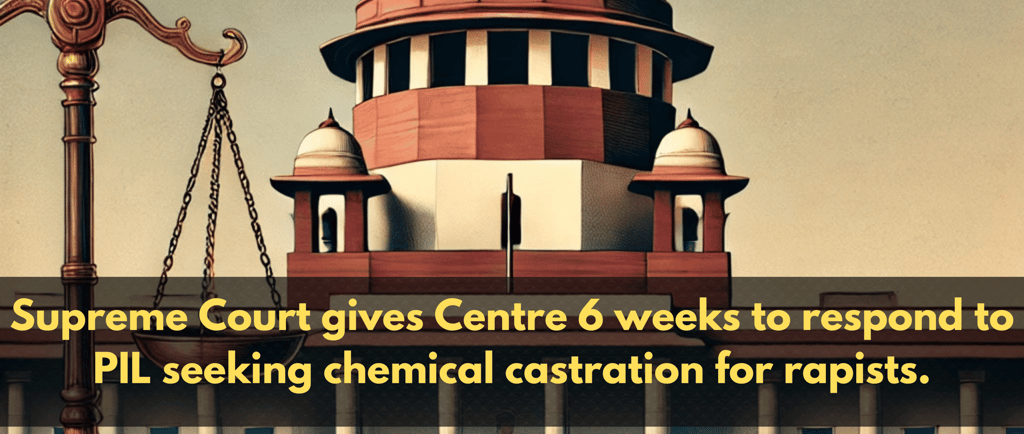Supreme Court gives Centre 6 weeks to respond to PIL seeking chemical castration for rapists.
The Supreme Court on Monday granted the Central Government an additional six weeks to submit its response to a Public Interest Litigation (PIL) seeking the implementation of nationwide guidelines for women's protection, comprehensive reforms to safeguard women, and the introduction of chemical castration as a penalty for sexual offences.
1/28/20251 min read


A Bench comprising Justices Surya Kant and N. Kotiswar Singh suggested that the petitioner circulate the plea among women lawyers from High Courts across the country to gather recommendations on addressing the issues raised.
"Six weeks' time is granted to the State to file a counter affidavit. In the meantime, circulate the plea and seek suggestions from women lawyers. Input from various sections of society, beyond Delhi, should also be considered," the Court observed.
The Supreme Court Women Lawyers Association (SCWLA) filed a Public Interest Litigation (PIL) seeking nationwide guidelines to protect women, implement reforms for women's safety, and introduce chemical castration as a penalty for sexual offences. The petition highlighted the increasing incidents of sexual violence against women and children, emphasizing the need for stringent measures to deter such crimes.
Court Analysis:
The Supreme Court bench, comprising Justices Surya Kant and N. Kotiswar Singh, acknowledged the gravity of the issues raised in the PIL. While recognizing the innovative nature of some proposed measures, the Court expressed concerns about certain suggestions, describing them as "barbaric." The bench emphasized the importance of gathering diverse perspectives on the matter. It suggested that the petitioner circulate the plea among women lawyers across High Courts to solicit suggestions on addressing the issues raised. The Court also noted that the implementation of stringent laws alone may not suffice without effective enforcement.
Judgment:
The Supreme Court granted the Central Government an additional six weeks to submit its response to the PIL. During this period, the Court encouraged the petitioner to engage with women lawyers from various regions to gather a wide range of suggestions. The matter is scheduled for further hearing in January 2025, where the Court will consider the responses from the government and the inputs from the legal community to determine the appropriate course of action.
